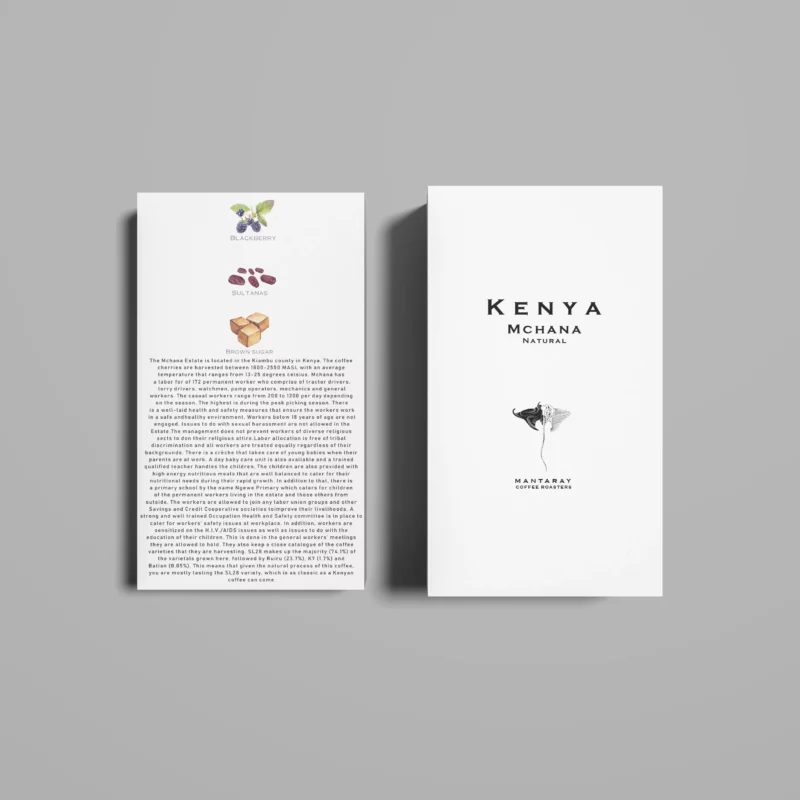
About this Coffee
ABOUT THIS SINGLE ORIGIN
Kenya Mchana Natural
ROAST: Espresso Roast
PROCESS: Natural
REGION: Kiambu
ELEVATION: 1800-1900
VARIETAL: SL28, K7, Ruiru 11 & Batian
CUP: Blackberry, Sultanas,Brown sugar
The Mchana Estate is located in the Kiambu county in Kenya. The coffee cherries are harvested between 1800-2550 MASL with an average temperature that ranges from 13-25 degrees celsius.
Mchana has a labor for of 172 permanent worker who comprise of tractor drivers, lorry drivers, watchmen, pump operators, mechanics and general workers. The casual workers range from 200 to 1200 per day depending on the season. The highest is during the peak picking season. There is a well-laid health and safety measures that ensure the workers work in a safe and healthy environment. Workers below 18 years of age are not engaged. Issues to do with sexual harassment are not allowed in the Estate. The management does not prevent workers of diverse religious sects to don their religious attire. Labor allocation is free of tribal discrimination and all workers are treated equally regardless of their backgrounds.
There is a crèche that takes care of young babies when their parents are at work. A day baby care unit is also available and a trained qualified teacher handles the children. The children are also provided with high energy nutritious meals that are well balanced to cater for their nutritional needs during their rapid growth.
In addition to that, there is a primary school by the name Ngewe Primary which caters for children of the permanent workers living in the estate and those others from outside.
The workers are allowed to join any labor union groups and other Savings and Credit Cooperative societies to improve their livelihoods. A strong and well trained Occupation Health and Safety committee is in place to cater for workers’ safety issues at workplace.
In addition, workers are sensitized on the H.I.V./AIDS issues as well as issues to do with the education of their children. This is done in the general workers’ meetings they are allowed to hold.
They also keep a close catalogue of the coffee varieties that they are harvesting. SL28 makes up the majority (74.1%) of the varietals grown here, followed by Ruiru (23.7%), K7 (1.7%) and Batian (0.05%). This means that given the natural process of this coffee, you are mostly tasting the SL28 variety, which is as classic as a Kenyan coffee can come.